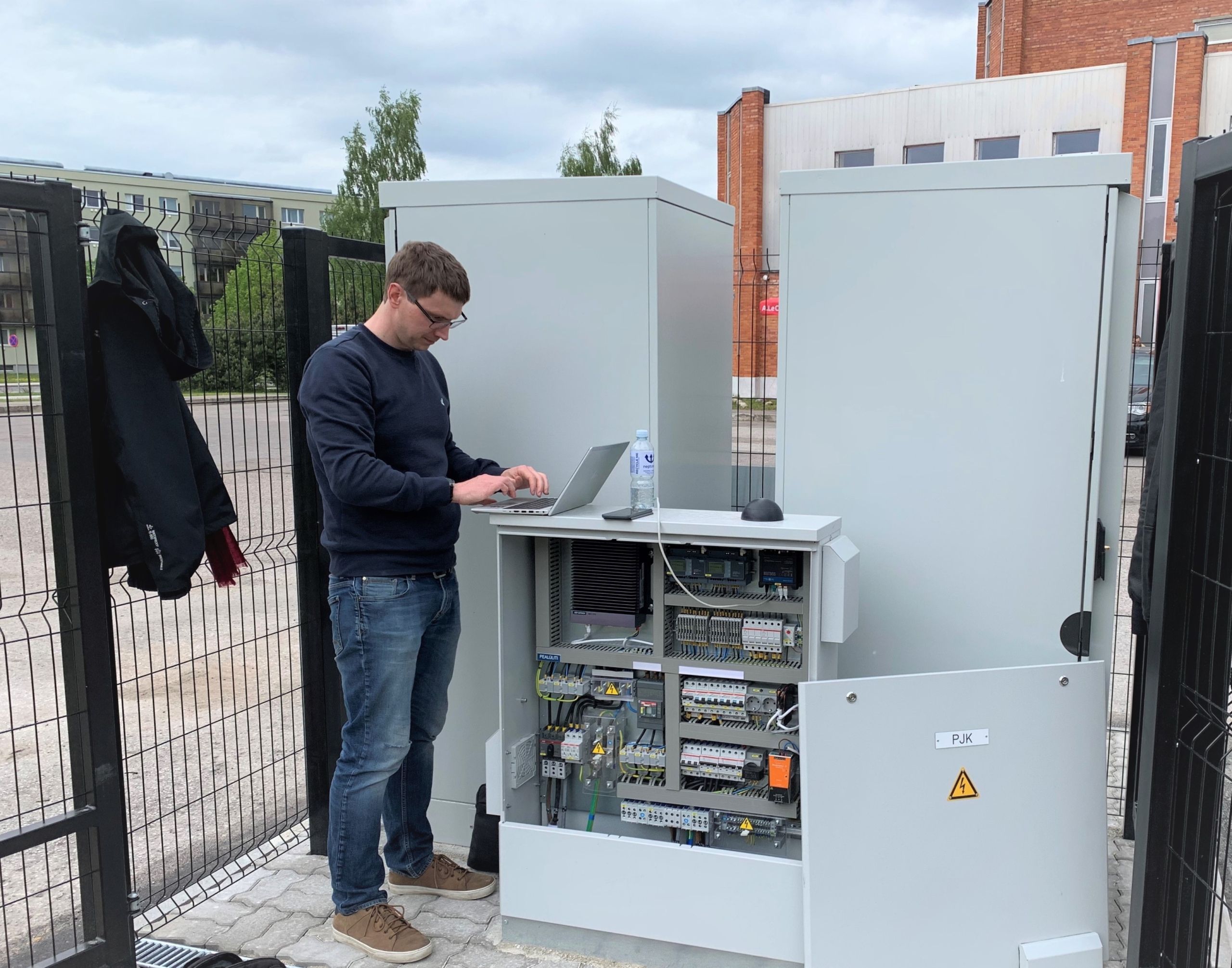Researchers from FinEst Centre for Smart Cities and TalTech have created a groundbreaking platform that revolutionizes energy management. By enabling the utilization of energy storage and control systems instead of relying solely on the power grid, this platform allows for optimized consumption profiles, efficient resource management, and the flexibility to respond swiftly to crises. Discover how this innovative solution empowers precise energy management for specific locations, paving the way for a sustainable and resilient future.
Tarmo Korõtko, senior researcher of TalTech’s Microgrids on Metrology Research Group, explains the current unreasonable situation, which can be described as follows:
“Imagine that you have a smartphone with only one app, and to use each subsequent app, you should also get a new phone. Our goal was to create such a platform where different applications can be brought together to manage energy flows. This way, for example, a city or an industrial park can choose a suitable service as needed.”
Microgrids and energy storage project was one of the six large pilot projects carried out during the past 2,5 years. One of the partners was City of Tartu and another one Lääne-Harju County, more specifically PAKRI Industrial Park.
Less energy waste and instability, more renewable and local energy
Making a pilot project in two different locations with different needs illustrates well the necessity of a single platform and its charm – you can choose a solution based on your goal or problem. For example, the goal of Tartu was to ensure the most efficient use of the energy reserve, including providing more services to the residents, and to be prepared for a crisis to support the residents.
Project manager from the city of Tartu and partner in this pilot project Jaanus Tamm, said that cities have a series of challenges, which can be greatly contributed to by research. “Energy management is an important part of everyday city management, and I am sincerely happy that smart energy systems are being developed in Tartu as a smart city in cooperation with the FinEst Centre for Smart Cities. The city has developed an extensive electrical network for street lighting, which is overloaded during the day and allows for the creation of flexible energy solutions. We see great potential in energy cooperatives in the on-site production of electricity.”




